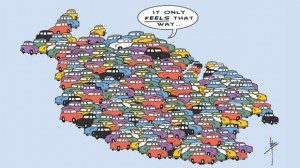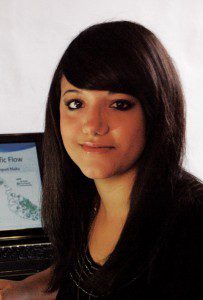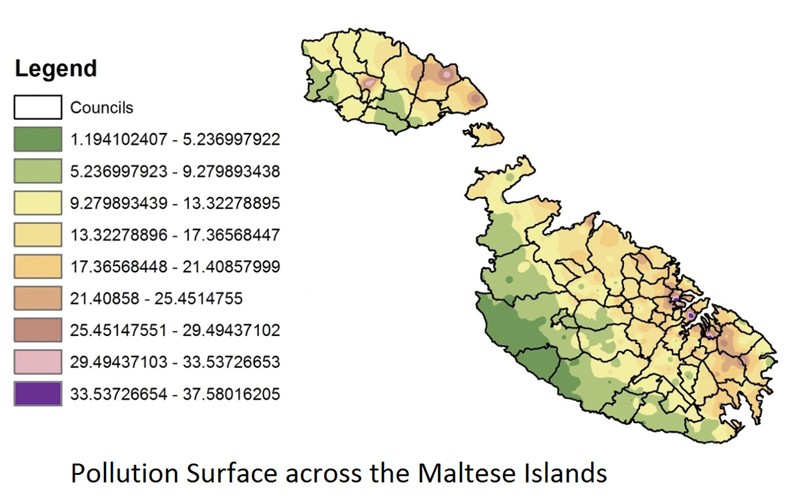Air pollution is one of Malta’s greatest concerns. Transportation is the principal source with over 300,000 vehicles belching out smoke, which damages our environment and health. Emissions from vehicles need to be monitored and controlled, and the information used to improve the current system and ensure an acceptable air quality.

In Malta, air pollution levels are monitored by MEPA (Malta Environment and Planning Authority). MEPA has 131 diffusion tubes that take monthly measurements of air pollution levels. The pollution data set used ranges from 2004 to 2011. On the other hand, Transport Malta (TM) measures traffic flow along the main arterial roads. By using the pollution data set, Nicolette Formosa (supervised by Dr Kenneth Scerri) mapped the air pollution levels and major sources around Malta.

MEPA and TM take measurements at different locations. To overcome this problem, the pollution data set needed to be interpolated to extend over the whole of Malta. By interpolating the pollution measurements using mathematical models, traffic and pollution levels can be directly compared.
Malta was divided into four zones. The Grand Harbour area had the strongest link between traffic and pollution. The central area has a strong overlap but this decreased on Saturday and more so on Sunday. The north and south parts of Malta experienced lower levels over weekends. However, the northern area has a stronger link during weekdays. The areas of Floriana and St Julian’s had a remarkable link between pollution and traffic, lighting a red bulb marking priority areas for the authorities to tackle.Overall, Malta’s air pollution problems are interwoven with its traffic volume. This highlights a problem which needs both scientific and political measures to tackle. Formosa’s studies need to be taken a step further, “there needs to be a statistical means to interpret the data of air pollution measured against traffic flows in the same areas“ said Hon. George Pullicino, Minister for Resources and Rural Affairs. If implemented, the research could help lower health care costs in Malta while improving the quality of life.
This research was performed as part of a Bachelor of Electrical Engineering (Honours) at the Faculty of Engineering.





Comments are closed for this article!